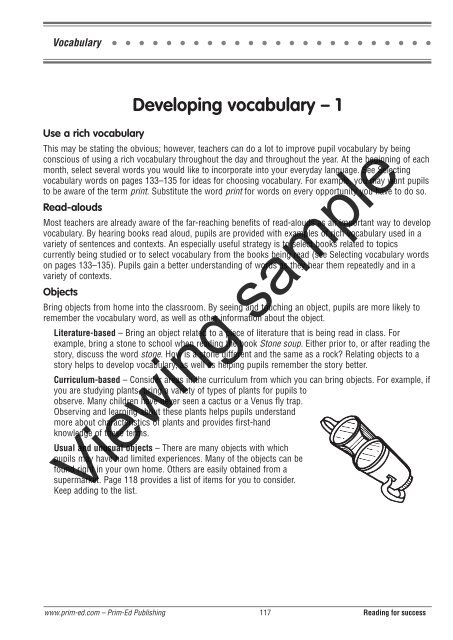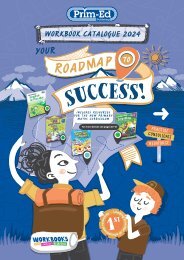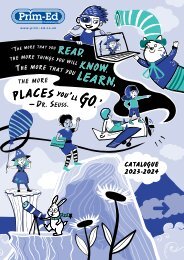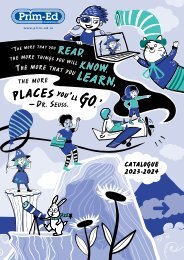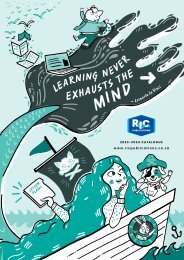PR-6216IRE Reading For Success - Book 1
You also want an ePaper? Increase the reach of your titles
YUMPU automatically turns print PDFs into web optimized ePapers that Google loves.
Vocabulary<br />
Use a rich vocabulary<br />
Developing vocabulary – 1<br />
This may be stating the obvious; however, teachers can do a lot to improve pupil vocabulary by being<br />
conscious of using a rich vocabulary throughout the day and throughout the year. At the beginning of each<br />
month, select several words you would like to incorporate into your everyday language. See Selecting<br />
vocabulary words on pages 133–135 for ideas for choosing vocabulary. <strong>For</strong> example, you may want pupils<br />
to be aware of the term print. Substitute the word print for words on every opportunity you have to do so.<br />
Read-alouds<br />
Most teachers are already aware of the far-reaching benefits of read-alouds as an important way to develop<br />
vocabulary. By hearing books read aloud, pupils are provided with examples of rich vocabulary used in a<br />
variety of sentences and contexts. An especially useful strategy is to select books related to topics<br />
currently being studied or to select vocabulary from the books being read (see Selecting vocabulary words<br />
on pages 133–135). Pupils gain a better understanding of words as they hear them repeatedly and in a<br />
variety of contexts.<br />
Objects<br />
Bring objects from home into the classroom. By seeing and touching an object, pupils are more likely to<br />
remember the vocabulary word, as well as other information about the object.<br />
Literature-based – Bring an object related to a piece of literature that is being read in class. <strong>For</strong><br />
example, bring a stone to school when reading the book Stone soup. Either prior to, or after reading the<br />
story, discuss the word stone. How is a stone different and the same as a rock? Relating objects to a<br />
story helps to develop vocabulary, as well as helping pupils remember the story better.<br />
Curriculum-based – Consider areas in the curriculum from which you can bring objects. <strong>For</strong> example, if<br />
you are studying plants, bring a variety of types of plants for pupils to<br />
observe. Many children have never seen a cactus or a Venus fly trap.<br />
Observing and learning about these plants helps pupils understand<br />
more about characteristics of plants and provides first-hand<br />
knowledge of these terms.<br />
Usual and unusual objects – There are many objects with which<br />
pupils may have had limited experiences. Many of the objects can be<br />
found right in your own home. Others are easily obtained from a<br />
supermarket. Page 118 provides a list of items for you to consider.<br />
Keep adding to the list.<br />
Viewing sample<br />
www.prim-ed.com – Prim-Ed Publishing 117 <strong>Reading</strong> for success


